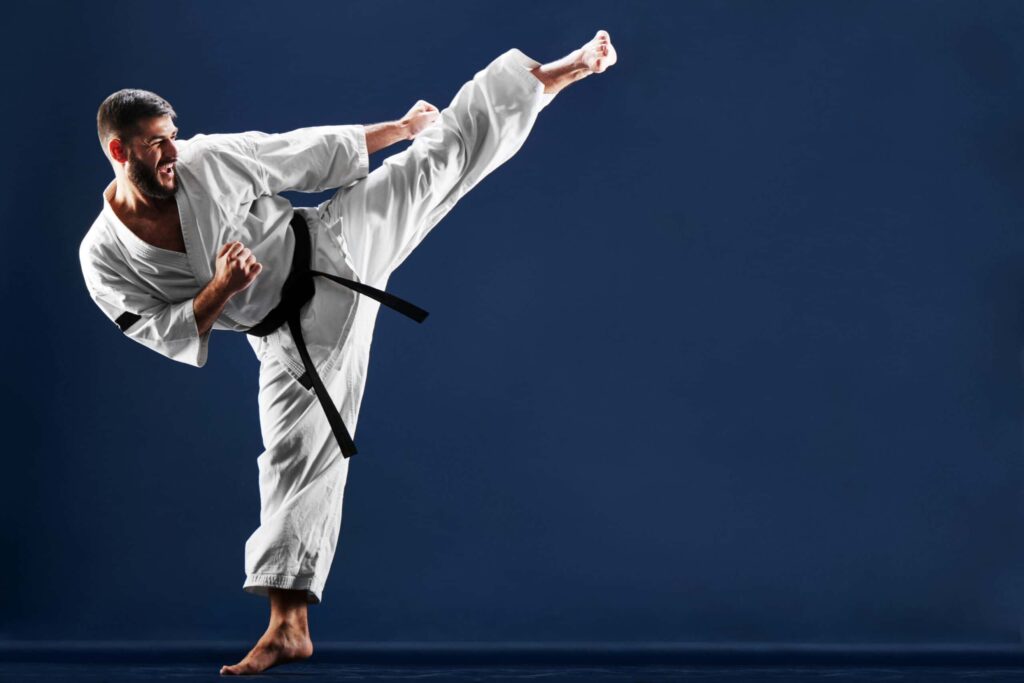
Kick stress to the curb
A lot of us are really good at convincing ourselves that we’ve got this. Stress is insidious, though. And if we don’t acknowledge and manage it, it will make its presence known.
Each year, the American Psychological Association (APA) conducts a survey of Americans to gauge the sources of their stress, the intensity of that stress and the strategies they’re employing, if any, to reduce it. Well, it probably comes as no surprise that we didn’t so well in 2020 courtesy of the COVID-19 pandemic and its wrath on our economy, our schools and, often, our family dynamics. Nearly 8 in 10 adults, or 78 percent of survey respondents, said the coronavirus pandemic is a significant source of stress in their lives. One of the more poignant findings of the 2020 Stress in AmericaTM survey was the impact of the pandemic on the mental health of “Generation Z” Americans – those between the ages of 13 and 23, “who are experiencing elevated stress and are already reporting symptoms of depression.” That’s no surprise, either, given that they’re coming of age at a time when their futures are very much uncertain. And all of us have been dealing with increased isolation, which doesn’t help matters.
Regardless of respondents’ ages, manifestations of their stress include sleep issues (inability to fall/stay asleep or sleeping excessively), increased body tension, reduced ability to control their emotions and/or increased mood swings.
But the forecast isn’t all gloom and doom, though. We have the power to take control of our stress. While we may not be able to change what’s happening around us, we can change our reaction to it.
Here are a few tips to get started and help relive stress:
At the very top of the Mayo Clinic’s list of recommended stress relievers is exercise. You don’t already have to be an athlete to make exercise a priority in your life. If you haven’t been on an exercise program before now and you have specific health concerns, you’ll want to discuss it with your doctor before you start. For the vast majority of us, though, it can be as easy as putting on some walking shoes and heading outside. Start small and work your way up. Schedule it on your calendar – block out the time. Note how you feel at the end of your workout. “Physical activity can pump up your feel-good endorphins and other natural neural chemicals that enhance your sense of well-being,” the Mayo Clinic shares. “Exercise can also refocus your mind on your body’s movements, which can improve your mood and help the day’s irritations fade away.” By the way, while the goal of most exercise sessions is to elevate the heart rate, you’ll also benefit from slower movements like yoga, stretching, meditation or tai chi. Consider incorporating some of those mindful activities into your day or week.
Quality sleep is elusive for so many of us. However, you might be able to trick the brain and body into slowing down through such habits as shutting down your tablet, phone or TV 30 minutes before bed, turning your clock away from sight, and listening to relaxing music for stress relief. Some insomnia sufferers swear by keeping a journal next to their nightstands and jotting down the day’s stresses or their to-do lists before they turn off the light. It’s worth mentioning, too, that exercise decreases insomnia. Dr. Charlene Gamaldo, medical director of the Johns Hopkins Center for Sleep, says that people don’t necessarily have to complete a strenuous workout to enjoy the sleep benefits of exercise; in fact, people who exercise for just 30 minutes at a moderate intensity may see a positive difference in sleep quality the same night.
Another great strategy for beating stress may be as near as your smartphone. Stress apps have soared in popularity; there are thousands of them available to you, some free and some for a fee. To help you find the app that’s best for you, check out this comprehensive list of stress apps, some of which have been reviewed by experts.
Volunteering or performing “random acts of kindness” is a great way to get out of your own head, foster self-confidence and gratitude – and it’s a great source of natural stress relief. Here are 50 ideas for random acts of kindness you can perform in your community (not all of them are pandemic-friendly, but they might spark a few additional ideas). Many of these random acts, even those that are social distanced or virtual, foster human connections that are so important to our well-being right now.
Above all, practice self-care – and remember that self-care isn’t selfish. You can’t be all of the things you’re expected to be if you don’t take care of yourself first. Tiger-Rock Martial Arts of Hutto gives martial artists of all ages opportunities to develop strength and confidence, push past their boundaries, set and achieve goals, and lower stress. It’s one of the best stress relief activities you’ll ever experience. To learn more or get started, contact us today.